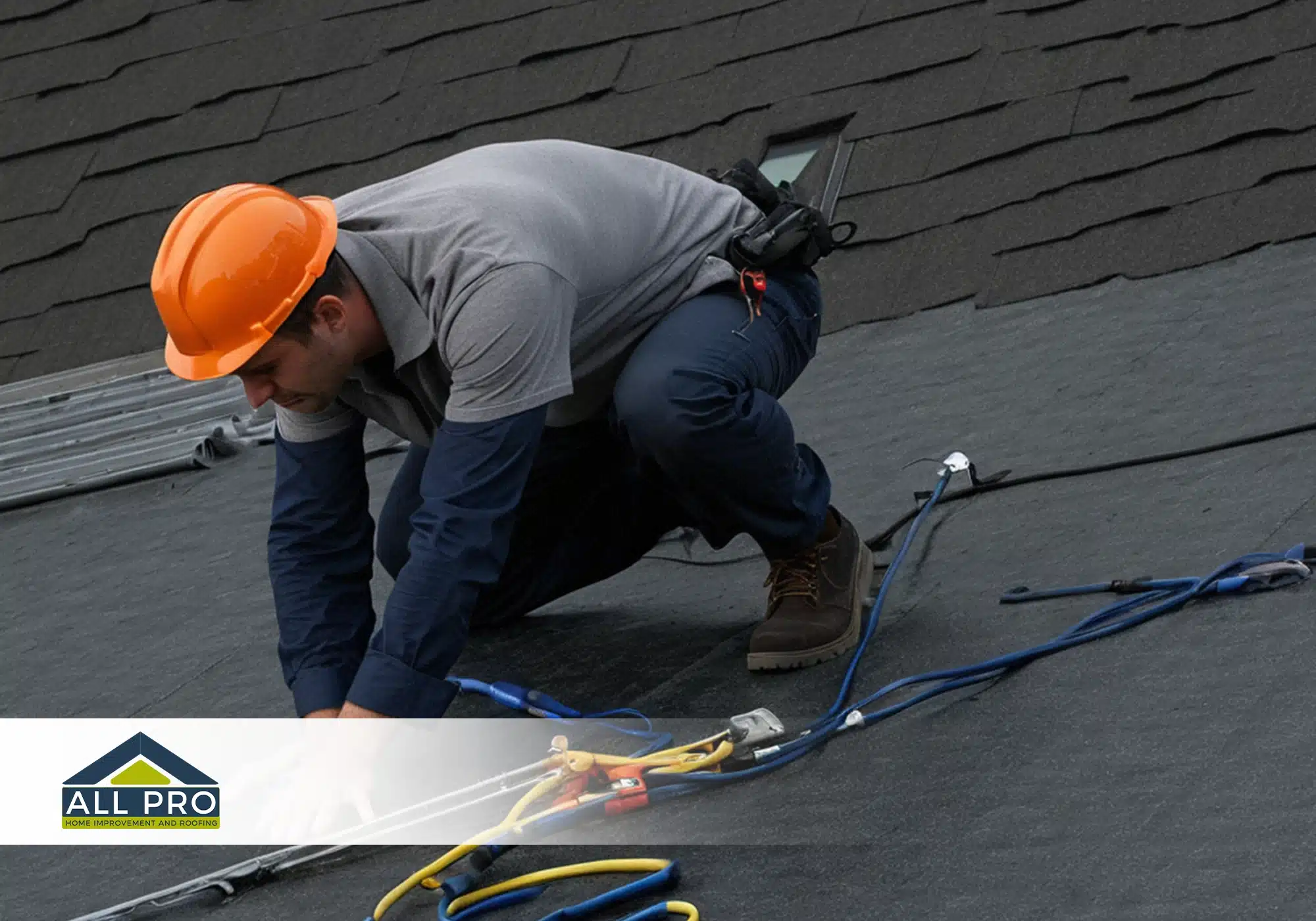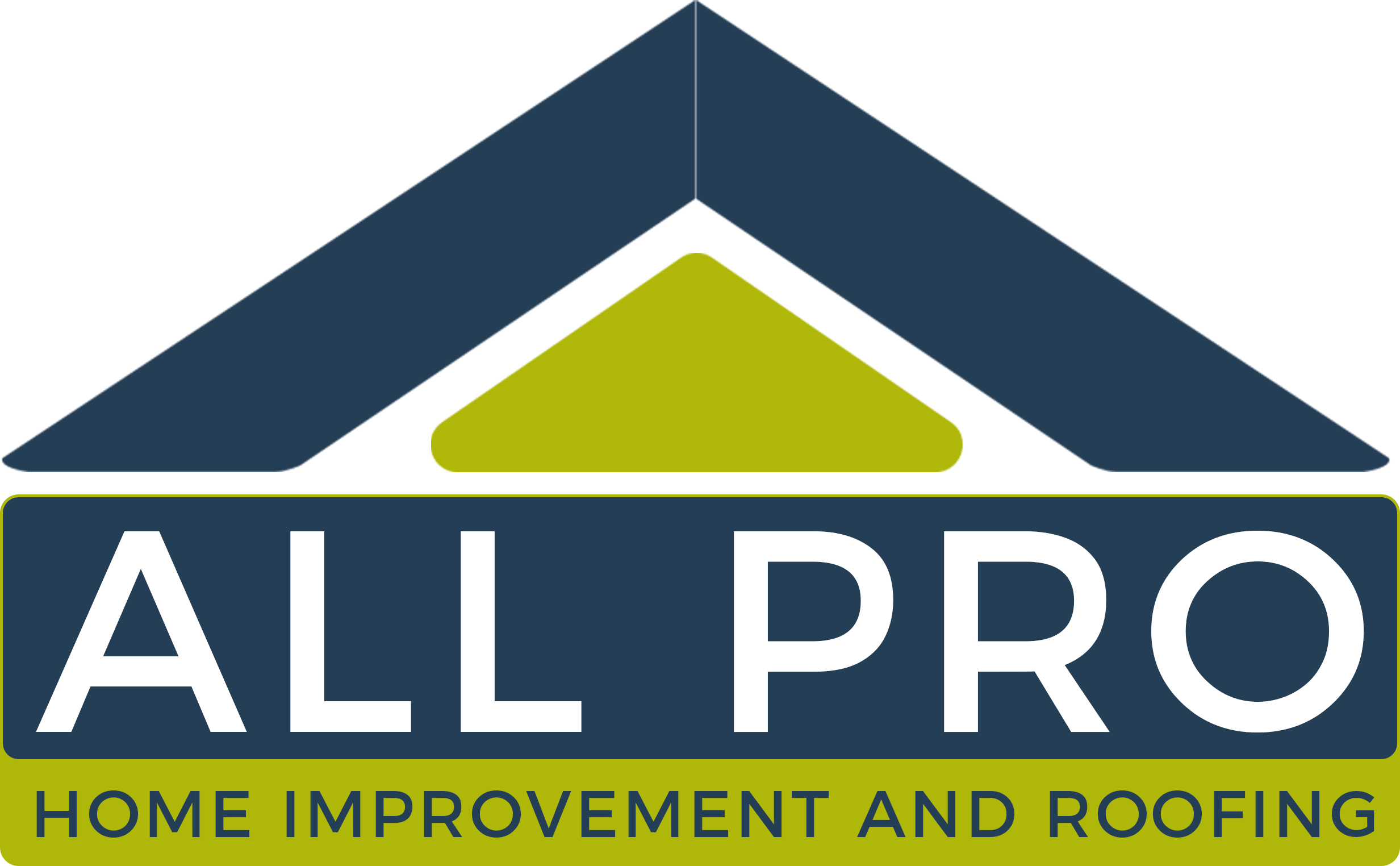
All Pro Home Improvement and Roofing specializes in providing top-notch residential roofing services that ensure your home is protected and aesthetically pleasing. Our team of experienced professionals is dedicated to delivering high-quality craftsmanship, whether it’s a complete roof installation, repairs, or routine maintenance. We use only the finest materials that are built to withstand the elements and enhance your home's value. With a focus on customer satisfaction, we take the time to understand each homeowner's unique needs and preferences, offering personalized solutions that fit your budget. Trust All Pro Home Improvement and Roofing to keep your roof in excellent condition, giving you peace of mind and safeguarding your most valuable investment.
Impact resistance ratings play a crucial role in determining the durability and performance of roofing materials against extreme weather events. Various roofing products, including asphalt shingles and tiles, undergo rigorous testing to assess their ability to withstand impacts from hailstones, falling debris, and severe winds. Manufacturers typically classify these materials into different categories, with precise ratings that help homeowners make informed decisions about the best solutions for their specific climates and environmental conditions.
For instance, GAF Timberline shingles and CertainTeed’s architectural shingles often highlight their impact resistance through specific certifications, assuring homeowners of their reliability. In addition to understanding these ratings, considering factors like warranty duration and implied warranties is essential. Some roofing materials incorporate features such as Scotchgard protection to enhance their longevity and resist stains like blue-green algae, which can affect curb appeal over time. Whether investing in slate, clay, or concrete products, selecting impact-resistant roofing can provide peace of mind against the elements.
When selecting an impact-resistant roofing product, consider materials known for their durability under severe weather conditions. Rubberized asphalt, EPDM, and polymer options offer good protection against hail and falling debris. Manufacturers often provide impact resistance ratings that can help homeowners make informed decisions. Look for products that come with a lifetime warranty, as this indicates a long-term commitment to quality. Additionally, brands like Holcim provide a range of coatings and granulation options that contribute to both resilience and aesthetic appeal.
Another essential factor is customer service and support from the manufacturer. Research companies that prioritize customer satisfaction and have a solid reputation, such as those with high ratings on the Better Business Bureau. Understanding the building envelope’s impact on overall energy efficiency can also guide your choice. Products that integrate well with green roofs or energy-efficient designs may offer additional benefits beyond mere protection, enhancing the overall value of your investment.
Recent innovations in roofing materials and technologies have transformed the options available for homeowners. The integration of energy-efficient products, such as those rated by Energy Star, minimizes energy consumption and supports sustainability. Metal roofs and slate shingles now come with enhanced durability and aesthetic appeal, while built-up roofing (BUR) systems offer robust waterproofing solutions suitable for flat roofs. Homeowners can take advantage of these advancements to not only improve the lifespan of their roofs but also contribute to a more environmentally friendly home.
The growing focus on sustainable practices in the roofing industry has led to the development of products that promote a circular economy. Many new materials incorporate recycled components, like upcycled plastic bags, contributing to reduced landfill waste. Additionally, advancements in sealant technology help protect against mildew and stains caused by heat and humidity. As roofing companies adopt these innovations, they provide homeowners with options that emphasize both functionality and eco-friendliness, making informed choices more accessible than ever.
Energy efficiency in roofing technology has seen significant advancements aimed at enhancing the sustainability of residential properties. Innovations include the use of materials like energy-efficient roofing tiles and metal roofs that reflect sunlight, reducing heat absorption. These roofs help maintain cooler interior temperatures and decrease reliance on air conditioning systems. Additionally, incorporating green roofs and living roofs can provide natural insulation while promoting biodiversity.
New roofing materials are designed to optimize performance and longevity. For instance, roofing felt has evolved to offer improved waterproofing and insulation properties. The adoption of recycled materials, such as recycled plastic and polymers in roofing products, supports a circular economy approach in construction. Homeowners can benefit from using these advanced roofing systems that not only meet aesthetic preferences but also contribute to long-term energy savings and environmental sustainability.
Regular maintenance is crucial for prolonging the life of residential roofs. Homeowners should consider conducting inspections at least twice a year, especially after severe weather events. This allows for the early detection of any potential issues like mildew, lichen growth, or visible wear on materials like shingles or tiles. It's important to ensure that drainage systems are clear to prevent water buildup, which can lead to structural damage over time. Utilizing sustainable practices, such as incorporating recycled materials or upcycled elements into renovations, can also enhance the roof's durability and reduce environmental impact.
Keeping roofs in top condition often involves addressing minor repairs promptly. Simple tasks like resealing around chimneys or vents with appropriate caulk or sealants can prevent leaks. Homeowners should also look for corrosion-resistant materials when replacing components like gutters or flashing. Regular cleaning not only improves aesthetics but also helps combat factors such as UV rays and heat islands that can shorten the roof's lifespan. Employing roofing analytics through smart technologies can provide valuable insights on maintenance needs, ultimately contributing to the roof's integrity and safety.
Regular inspections are vital for maintaining a residential roof in good condition. Homeowners should schedule checks after severe weather events, especially following heavy rains or strong winds. Look for signs of damage, such as missing or broken shingles, mold growth, or issues around chimneys and vents. Addressing small problems early can prevent costly repairs down the line. Ensuring proper drainage by cleaning gutters and downspouts also plays a critical role in extending the life of a roof.
Proper maintenance not only enhances a roof's longevity but also its performance. Implementing techniques like flashing repairs and applying protective coatings can significantly improve durability. Homeowners should also consider the impact of local environmental factors. For instance, areas with heavy tree cover may require more frequent cleaning to avoid the accumulation of leaves and debris. Understanding these elements will aid in preserving the roof's integrity and effectiveness over the years.
Impact resistance ratings indicate how well a roofing material can withstand damage from hail, debris, and other potential impacts. These ratings help homeowners select roofs that can endure harsh weather conditions.
When selecting an impact-resistant roofing product, consider factors such as the material's impact resistance rating, warranty offered, local climate conditions, and your home’s architectural style. Consulting with a roofing professional can also help you make an informed decision.
Recent advancements in roofing technology include the development of more durable materials, improved energy efficiency features, and enhanced installation techniques. These innovations aim to provide better protection, longevity, and environmental benefits for residential roofs.
To improve the energy efficiency of your roof, consider installing reflective roofing materials, adding insulation, and ensuring proper ventilation. Regular maintenance can also help keep your roof performing efficiently.
Best practices for maintaining a residential roof include regular inspections, cleaning gutters and downspouts, removing debris, checking for signs of wear or damage, and addressing small issues before they become larger problems. It's also advisable to schedule professional inspections periodically.


Copyright © All Pro Home Improvement and Roofing. All Rights Reserved
